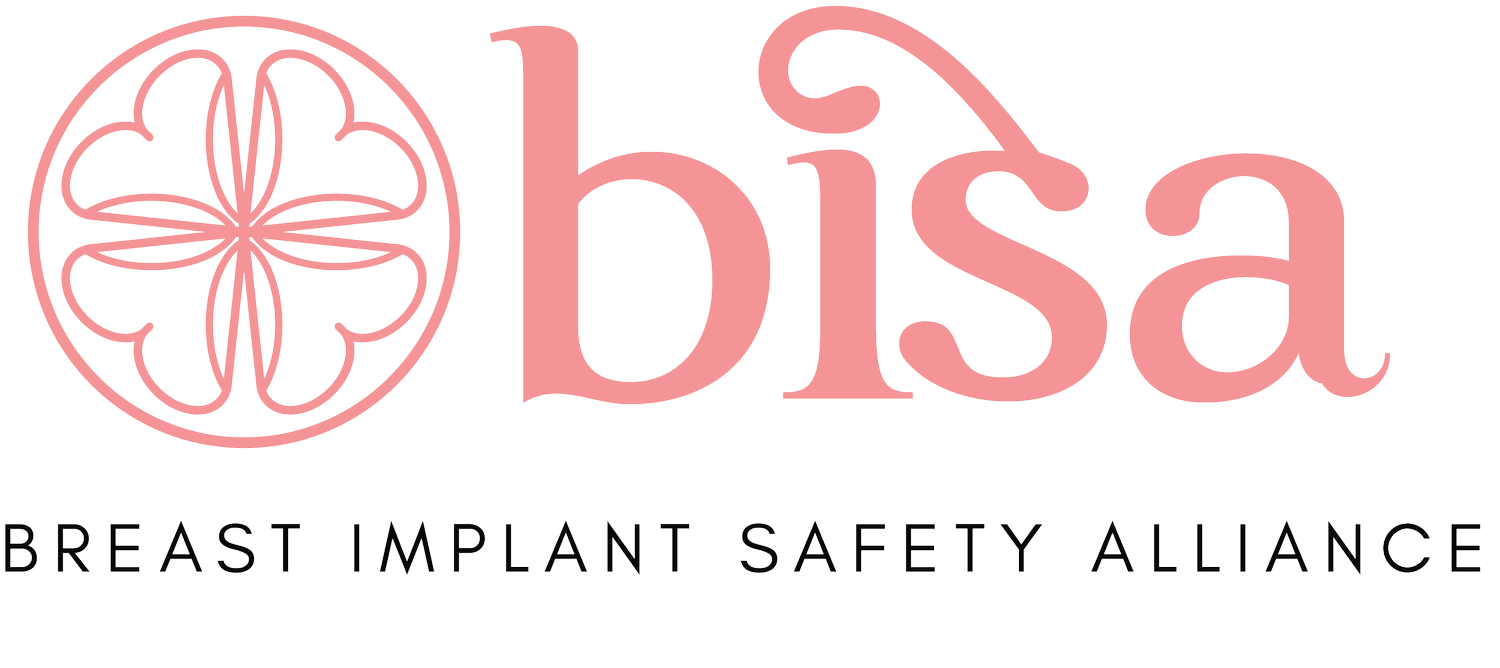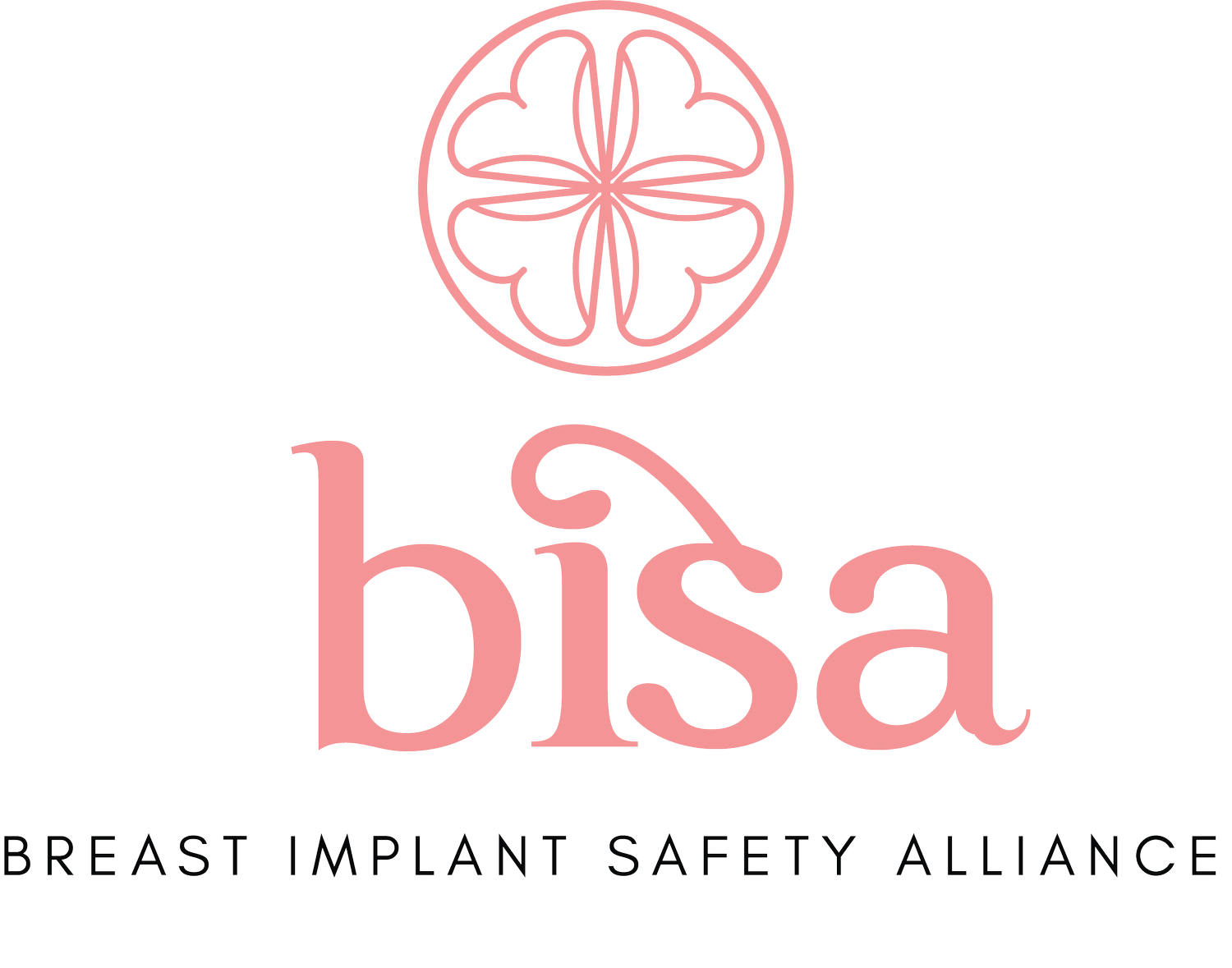5 Things to Know About Breast Implants in 2024
Breast augmentation is a widely performed surgery. A lot of women are aware of the positive effects of breast implants. However, potential risks related to these devices are generally unknown to the public. Women should be aware of the potential risks when considering or already living with breast implants.
BISA wants to keep women healthy, safe, and informed. In 2024, here are 5 important things to know about breast implants.
1 - Foreign Objects
Breast implants are foreign objects and can cause different reactions and complications in everyone. For some, this can cause a wide variety of symptoms, sickness (breast implant illness), and sometimes various cancers. All breast implants contain silicone. Saline-filled implants are also in a silicone shell. We don’t know who will be impacted, why, or when, and you won’t know how your body will be impacted until after having surgery.
2 - Additional Surgeries
When choosing breast implants, you need to be aware that you’re signing yourself up for additional surgeries. Breast implants are not lifetime devices. Potential risks increase the longer you have breast implants in your body. Some complications will require more surgery. Even without complications, removal or replacement is recommended every ten years.
3 - Device Failure
Breast implants can harden, deflate, or rupture. A hardening of the tissue surrounding the breast implant (capsular contracture) can be painful. Women also suffer from ruptures. Some are silent ruptures, meaning there was no sign the implant was leaking into the body. Chemicals in all breast implants can leak and bleed microscopically inside the body, which may cause health problems even if the implant is not ruptured. Silicone has also been known to migrate to other parts of the body. Some breast implants have been voluntarily recalled due to cancer. Being aware of signs and symptoms of potential complications is very important when considering or living with breast implants.
4 - Can be Costly
Known complications involving breast implants are often not covered by insurance, and the additional surgeries can be quite costly. Some breast implant complications are still not well understood or studied. Screening, additional tests,, and surgeries can be costly and may not be covered by insurance. There are also no standards of care for women with breast implants, which can impact you physically, emotionally, and financially.
5 - Communication Concerns
New safety information about breast implants has been slow to reach the public. Some breast implant safety studies were never completed, which impacts patient safety today. Breast implants have not been successfully tracked, and some important info was not accessible to the public until recently. Problems with breast implants continue to be underreported because, although highly encouraged, doctors are not required to report them. Some breast implants that were voluntarily recalled due to cancer have gone by different names. Many women have not been made aware of the recall and advocates continue to urge the FDA for better communication and recall notification. In order to increase awareness of the risks, the FDA recommended the use of an informed consent checklist. However, the use is not enforced, and it remains unclear if everyone is using it.
A few recommendations…
Research as much as you can when considering breast implants. A great place to start is to read FDA: What to Know About Breast Implants. Before having implants placed, be sure to read the FDA’s Guidance Document, including the boxed warning and a sample informed consent checklist, to ensure you’re aware of any potential risks and complications.
Read the manufacturer's safety information in detail before signing any informed consent documents. Be aware of details for any manufacturer warranty that you may wish to purchase. Consider what your plan might be if this warranty were to become void. Pay attention to the fine print in any manufacturer warranty and consider the circumstances under which the manufacturer might deny coverage under the warranty, and/or require that you sign a release of liability–that you may not want to sign–as a condition for receiving compensation.
Alert your doctors that you have breast implants. Keep track of changes in your breast and overall health and report changes in your health to your doctors.
Start gathering copies of your medical records.
Stay aware of any signs or symptoms of breast implant complications.
Take pictures of your implant identification information and store it in a safe place.
Report problems, side effects, and any new autoimmune or cancer diagnosis to the FDA MedWatch program. Doctors are not mandated to do this on your behalf, and you should be aware that you can self-report directly to the FDA.
Sign up for updates from the Breast Implant Safety Alliance to stay informed.
Resources & References
FDA: Learn if a Medical Device Has Been Cleared by FDA for Marketing
ICIJ: FDA Kept Hundreds of Thousands of Breast Implant Incidents Hidden From Public
What to Know About Breast Implants
Medical Device Reports for Systemic Symptoms in Women with Breast Implants
DrugWatch: Allergan Breast Implant Recalls
MedWatch: The FDA Safety Information and Adverse Event Reporting Program
MedTech Dive: 6 Ways the FDA Can Improve Medical Device Recalls
BISA: Alarming Trends Prompt American Society of Plastic Surgeons (ASPS) to Join Breast Implant Safety Alliance (BISA) Advocates on Capitol Hill
BISA: 5 Things to Know in 2023 about Breast Implants



